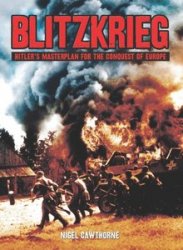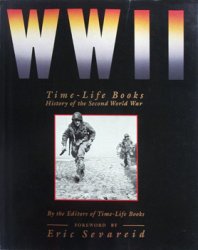General Stemmermann, as one might expect, had not succeeded in forming a front to the south as he had been enjoined to do in his orders from Rasten-burg, without at the same time abandoning Kanev and the banks of the Dniepr, which would have been in defiance of these orders. On February 8 he gave no reply to a summons to capitulate transmitted to him from General Konev, under orders to reduce the pocket. Both Stemmermann and his subordinates turned a deaf ear to the exhortations made to them by representatives of the "Committee for a Free Germany” who had been conveyed to the battlefield on Moscow’s orders and were led by General von

Seydlitz-Kurzbach, former commander of LI Corps, who had heen taken prisoner at Stalingrad. The tracts and individual free passes scattered among the soldiers with a view to encouraging surrender were equally ignored.
Notwithstanding, the airlift worked poorly in the face of an abundant and highly effective Soviet fighter force, and those encircled at Korsun’ saw their strength diminish further each day. It was inevitable that the order should come to attempt to break out towards III Panzer Corps, which had been conclusively halted by the mud. It was the only chance left.
To this effect. General Stemmermann reassembled the remnants of his two corps round the village of Shanderovka and organised them in three echelons: at the head the grenadiers, bayonets fixed, next the heavy infantry units, and then finally the artillery and service troops. The 57th and 88th Infantry Divisions protected the rear and showed themselves equal to the sacrifice they
Were called upon to give. The attempt took place on the night of February 16-17, but at first light Soviet artillery, tanks, and aircraft were able to react with vigour and immediate effect:
"Till now,” writes General von Vor-mann, "our forces had dragged all their heavy equipment across gullies filled with thick, impacted snow. But then enemy shelling proved our undoing. Artillery and assault guns were abandoned after they had exhausted their ammunition. And then the wounded moving with the troops met their fate. . . Veritable hordes of hundreds of soldiers from every type of unit headed westwards under the nearest available officer. The enemy infantry were swept out of the way by our advancing bayonets; even the tanks turned in their tracks. But all the same Russian fire struck with impunity at the masses, moving forward with heads down, unevenly and unprotected. Our losses multiplied...”
This hopeless charge by 40,000 men foundered on the natural obstacle of the Gniloy-Tikich, a stream which had thawed only a few days previously, and was now 25 feet wide and just deep enough for a man to drown in. And it heralded a fresh disaster, which the Belgian Leon Degrelle, fighting in the ranks of the S. S. Sturmbrigade "Wallonie”, describes in unforgettable terms:
"The artillery teams which had escaped destruction plunged first into the waves and ice floes. The banks of the river were steep, the horses turned back and were drowned. Men then threw themselves in to cross the river by swimming. But hardly had they got to the other side than they were transformed into blocks of ice, and their clothes frozen to their bodies. They tried to throw their equipment over the river. But often their uniforms fell into the current. Soon hundreds of soldiers, completely naked and red as lobsters, were thronging the other bank. Many soldiers did not know how to swim. Maddened by the approach of the Russian armour which was coming down the slope and firing at them, they threw themselves pell-mell into the icy water. Some escaped death by clinging to trees which had been hastily felled. . . but hundreds were drowned. Under the fire of tanks thousands upon thousands of soldiers, half clothed, streaming with icy water or naked as the day they were born, ran through the snow towards the distant cottages of Lysyanka.”

A By the beginning of 1944 the "Nazi Victory Express” had not only been halted hut pushed firmly into reverse by Stalin's "adjustments” to the line.
V A German assessment of Russian thinking: "Be eareful, eomrades! The Germans are bandits, and the Amerieans gangsters. But worst of all are the British: they’re our allies!”


A Part of the German bag taken in the Korsun’-Shevchenkouskiy pocket.




 World History
World History![Black Thursday [Illustrated Edition]](https://www.worldhistory.biz/uploads/posts/2015-05/1432470149_1431513568_003514b1_medium.jpeg)









